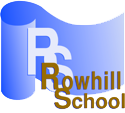Music Therapy
Music therapy happens as individual or group sessions in school, loosely guided by the principles of Nordoff-Robbins music therapy, but adapted to best meet the needs and issues of our student population. Thus, sessions are essentially child centered, focusing on active participation and student ownership of the process, looking to use music or musical involvement as the agent to bring about change for the individual. This process can enable change either through increased self-awareness or through the growth of self-esteem due to involvement and perceived achievement, as well as new patterns of social interaction in a non-verbal environment.
Many of our students can get 'fixed' in terms of the ways that they can respond to situations, often falling into familiar, confrontational patterns of verbal even physical interactions when being 'triggered' by emotions. Through the emotive and interactive qualities of music, it is possible to embrace emotional experiences non-verbally, or for some lyrically, to feel emotions safely, but also have the opportunity to respond in a different creative way, offering a different pathway to the emotional response. The interactive and social aspect of music, creating or performing it, offers the opportunity to develop friendships through joint activity, 'togetherness' which can extend from group classroom sessions, into the wider world, in terms of performing at different events as suitable for the group. Some students will create their own musical identity, and create music or songs to a high level through individual mentoring and the use of our studio resources.
Types of sessions : individual / group - purely music ( band instruments, 1:1 guitar, singing & song writing )
studio sessions - music production
studio sessions - song writing and artist development
These sessions are staffed by a qualified music therapist, a specialist studio engineer / mentor, and two specialist music teaching assistants
